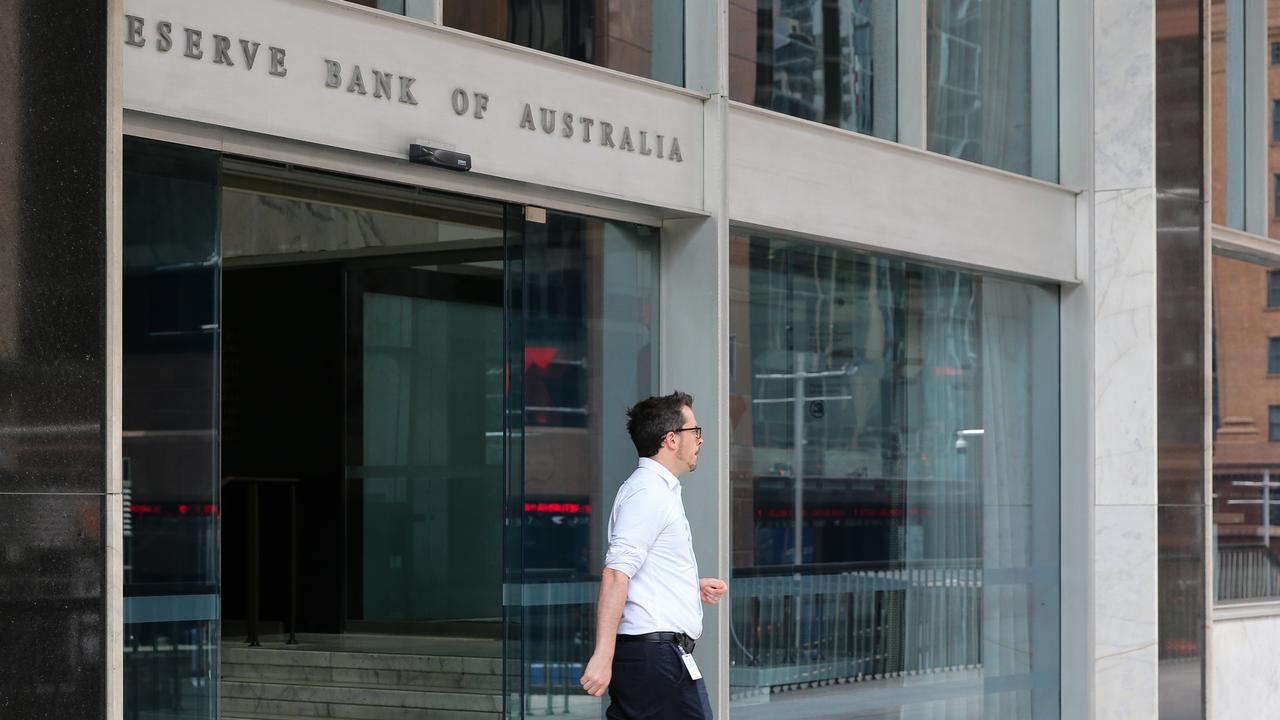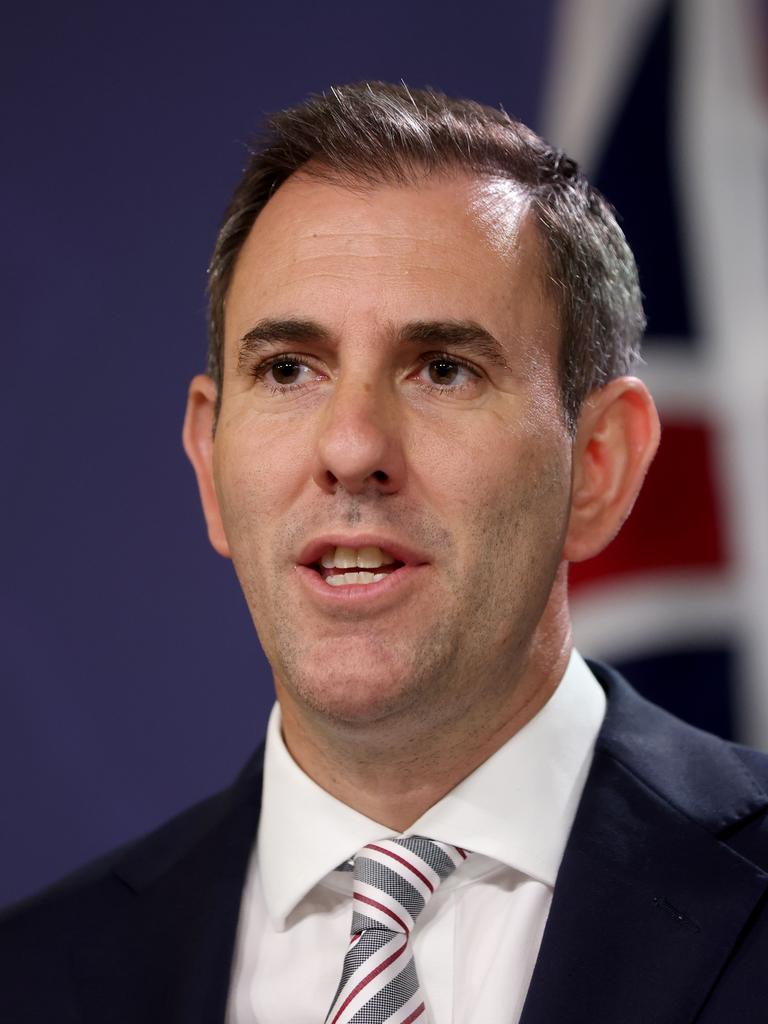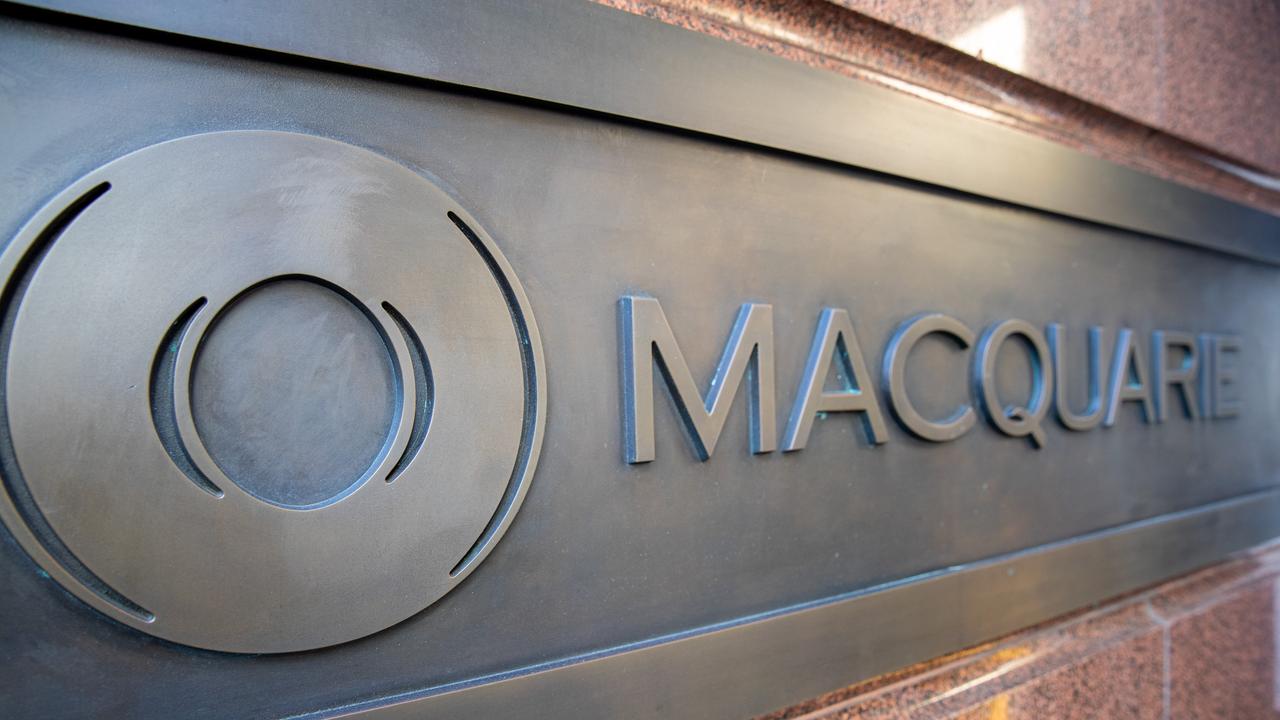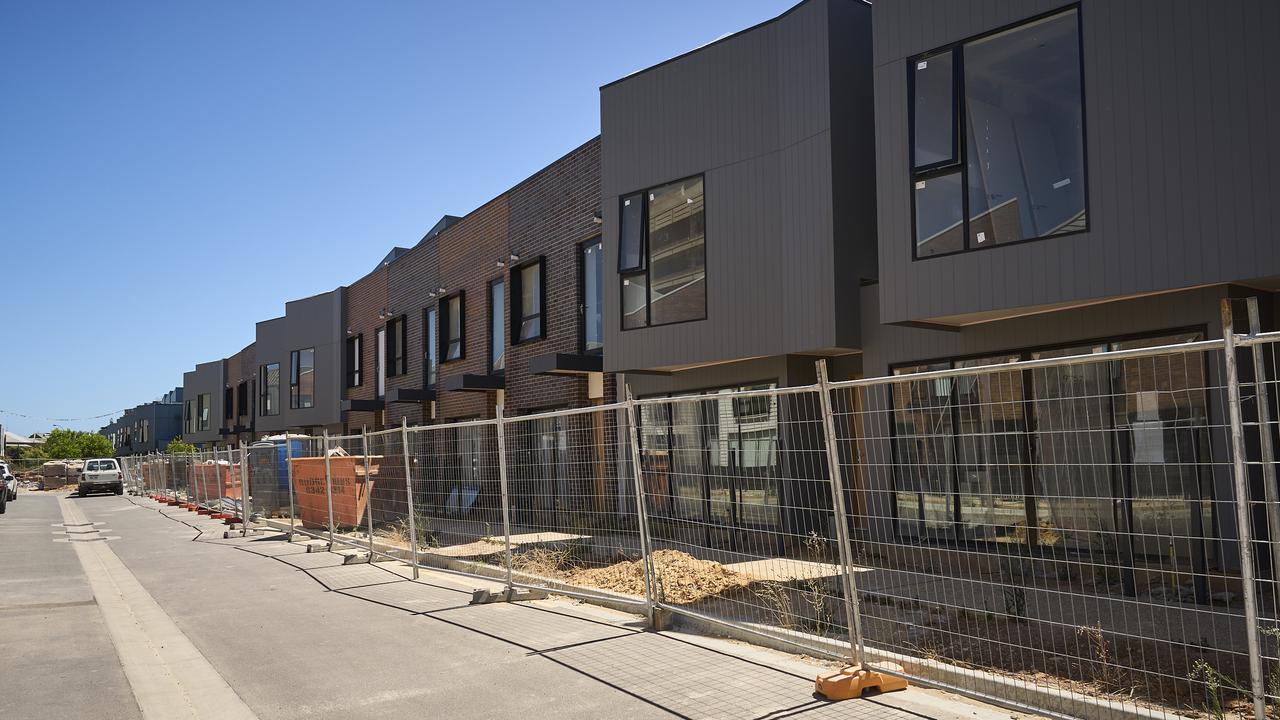RBA’s Lowe risks becoming a casualty of rate rise politics
The central bank governor has found himself caught on the wrong side of an economic cycle, with his seven-year term set to expire just as interest rates are likely to peak.

Business
Don't miss out on the headlines from Business. Followed categories will be added to My News.
Reserve Bank governor Philip Lowe has found himself caught on the wrong side of an economic cycle, with his seven-year term set to expire just as interest rates are expected to peak.
Lowe’s reappointment will make a tough call for Treasurer Jim Chalmers, who will also have an eye on the politics, with middle Australia crying out with interest rates at decade-long highs and an economy barely growing.
Any missteps in the fight against inflation by the RBA threatens to push the economy into recession along with the rest of the developed world. All this comes ahead of the next federal election due by 2025.

It would be a big call for a government to decline to extend the first-year term of an RBA governor who is seeking one as well as stoke questions around independence.
The RBA has had to reset its succession planning following the exit of former deputy governor Guy Debelle. At the same time Lowe’s dovish instincts on cash rates and stated concerns toward a decade of low wages growth are certainly more aligned with a Labor government.
But armed with the findings of a wholesale review of the Reserve Bank, the case could be made easier for Chalmers to make changes at the top.
It comes amid rising criticism the RBA was late in trying to tame inflation — while households that are less engaged in day-to-day economics saw a central bank governor saying that rates would stay rock bottom until 2024. In the past eight months their mortgage repayments have steadily taken a bigger chunk out of their salaries.
Chalmers on Thursday pointed out he has a good working relationship with Lowe and respected the independence of the central bank. But the Treasurer confirmed on ABC radio that he, along with his Cabinet colleagues, would be forming a view on Lowe’s reappointment around the middle of next year. Critically the findings of the Review of the Reserve Bank, commissioned by Chalmers and due for release in March, will factor into his thinking.
“It will obviously guide the kind of Reserve Bank that we want, and the personnel, the leadership of the Bank will clearly feed into those kinds of considerations,” Chalmers told ABC radio.

He was speaking as public submissions in the Reserve Bank Review were released. Suggestions from academics, economists, banks and business ranged from the modest (live streaming of RBA board meetings) to major (enshrining an explicit full employment target as well as a housing affordability mandate).
There was also a view, which has been floated by the three-panel review, to separate the interest-rate setting board of the RBA from the main board which would act as a governance safety net around decisions being made that impact the economy. This is the model used in the UK for the running of the Bank of England.
The RBA’s own self assessment admits shortcomings in managing a way out of the pandemic. It remains at a loss to explain why the current inflation fire was not captured in its economic models, but acknowledges “a greater focus on the upside” could have led to earlier decisions to remove or stop adding stimulus.
Meanwhile, a forensic look by the RBA at its own cash rate decisions from when rates were at near zero in November last year until its first interest rate hike in May this year, hinted at a failure to recognise and respond at the board level to the shifting environment including rising inflation as 2022 got underway.
And while Lowe last month apologised for that forward guidance – that is rates to stay rock bottom until 2024 – the central bank mounted a qualified defence saying guidance had been “conditional on the state of the economy” while the policy had been “perceived as a promise”.
Elsewhere it uncovered some insight into black box of how interest rates are set in the central bank’s monthly board meeting but revealed there is often little contest inside the meeting with the independent board for the past decade voting in favour of recommendations from RBA officials.
Much of the current criticism aimed at the RBA is centred around the period of the pandemic, specifically in the aftermath. However the review needs to take a wider lens than the past two years.
Few people were complaining about the steady march down in the cash rate over the past decade under Lowe as inflation ebbed away. Nor did the RBA hold back from global counterparts in the depths of the global pandemic as rates were slashed and cash pumped into the economy.
The fact is any exit from the Covid-19 free money machine was always going to be painful. The review also needs to recognise economics is not a perfect science. By their nature economies don’t run smoothly and from time to time suffer shocks. But for the goal for an economy to be well functioning, the perception of independence of the RBA remains critical. And this is where Chalmers needs to be careful in pressing the politics.
–
Reputational stain
On the eve of his retirement, the Downer EDI boss Grant Fenn is facing questions as to why no red flags were noticed after only now uncovering accounting errors inside a corner of his engineering business going back years.
Markets have zero tolerance for accounting problems, because more often than not it is a sign of broader problems in a business.
It’s a reputational blow for Fenn, who only last week outlined plans to step down in February and hand over the role to chief operating officer and former Spotless executive Peter Tompkins.

It’s particularly galling for Fenn given he is a former accountant with KPMG and a member of the Australian Institute of Chartered Accountants.
Fenn says it’s too early to say whether the errors were fraud or genuine accounting mistakes, with investigations still underway. He is confident the problems were isolated to the single contract which is worth over $170m in annual revenue.
A noticeably angry Fenn told investors he was first informed of the shortfall on Monday night and has been working since to quantify the impact and whether this was a systemic issue across the company. So far Downer expects accumulated losses of between $30m to $40m.
The problems relate to a contract entered into mid-2019 with a utility customer, which was an extension of an existing engineering deal already in place. It was a complex contract involving thousands of work orders being filled each month. However the unit managers had been booking revenue on the work orders before recognising costs. This had the impact of vastly overstating contract profitability.
For now, Fenn doesn’t have an answer as to why the errors weren’t able to be picked up.
“We’ve in fact, looked at the nature of the work in progress (WIP) previously and there’s been no indication that this issue was an issue.
“So there’s a lot of legitimate WIP here, but that’s what we’ve been concentrating on rather than a view that there’s actually illegitimate WIP,” he says.
“This is a hardwired revenue recognition that wasn’t adequately understood. It was understood by the contract management but wasn’t understood by anybody else,” he says.
The findings could result in Downer having to renegotiate the contract with the customer, whose name wasn’t disclosed. However Fenn is looking at internal levers to bring the contract back into profit.
It still isn’t enough to calm the nerves of investors around questions of whether there are cultural issues or Downer’s systems weren’t adequate. A review into other parts of the business could still turn up problem accounting.
For investors this has brought back memories of the Downer of old with its propensity to surprise with bad news just when everything seemed to be running smoothly.
Indeed the cumulative losses from the accounting mistakes were packaged with a broader profit downgrade, with Downer to miss its already downgraded earnings guidance due to weather delays and some ongoing Covid-linked absenteeism. Investors are more tolerant of those types of misses.
johnstone@theaustralian.com.au
Originally published as RBA’s Lowe risks becoming a casualty of rate rise politics







